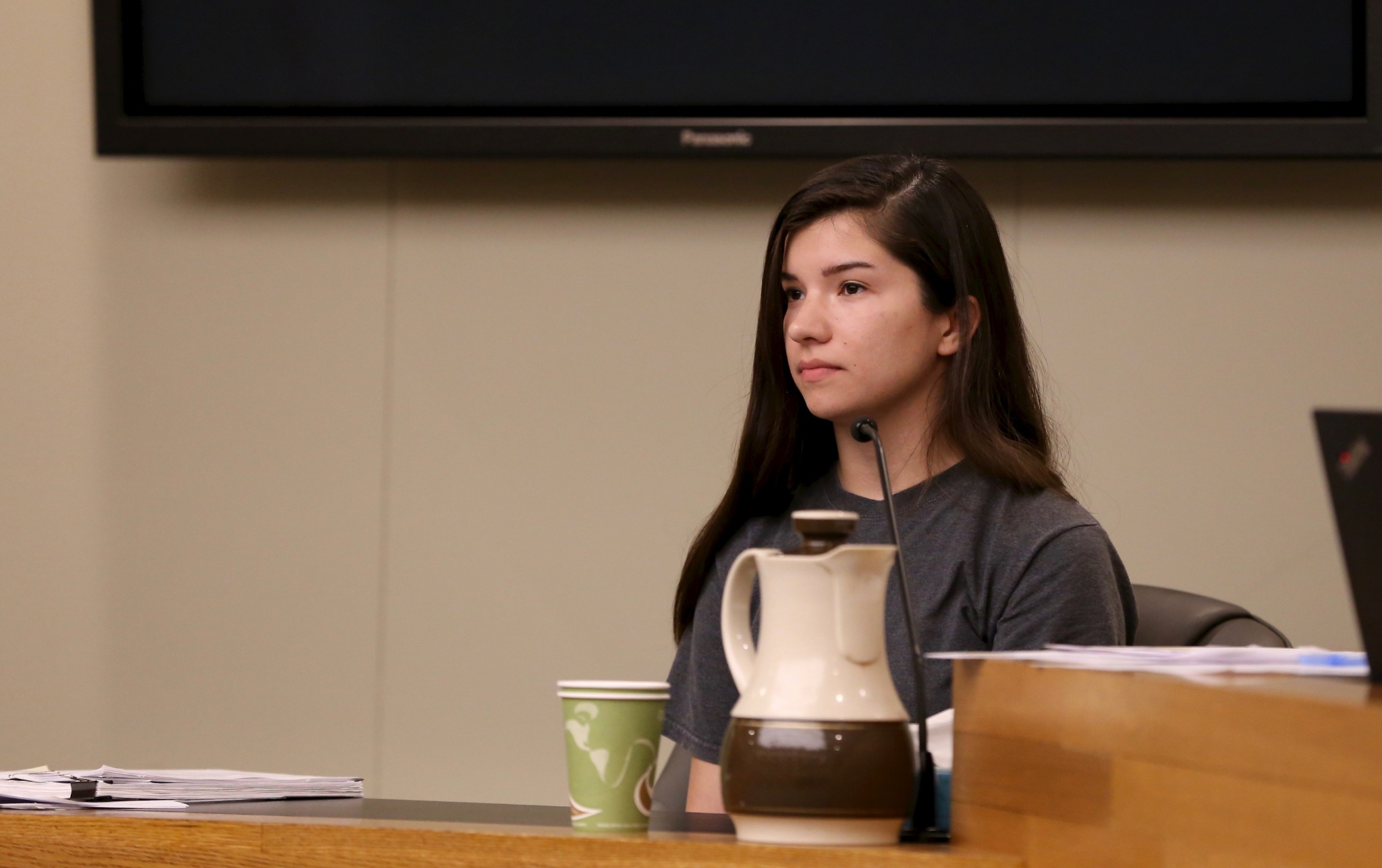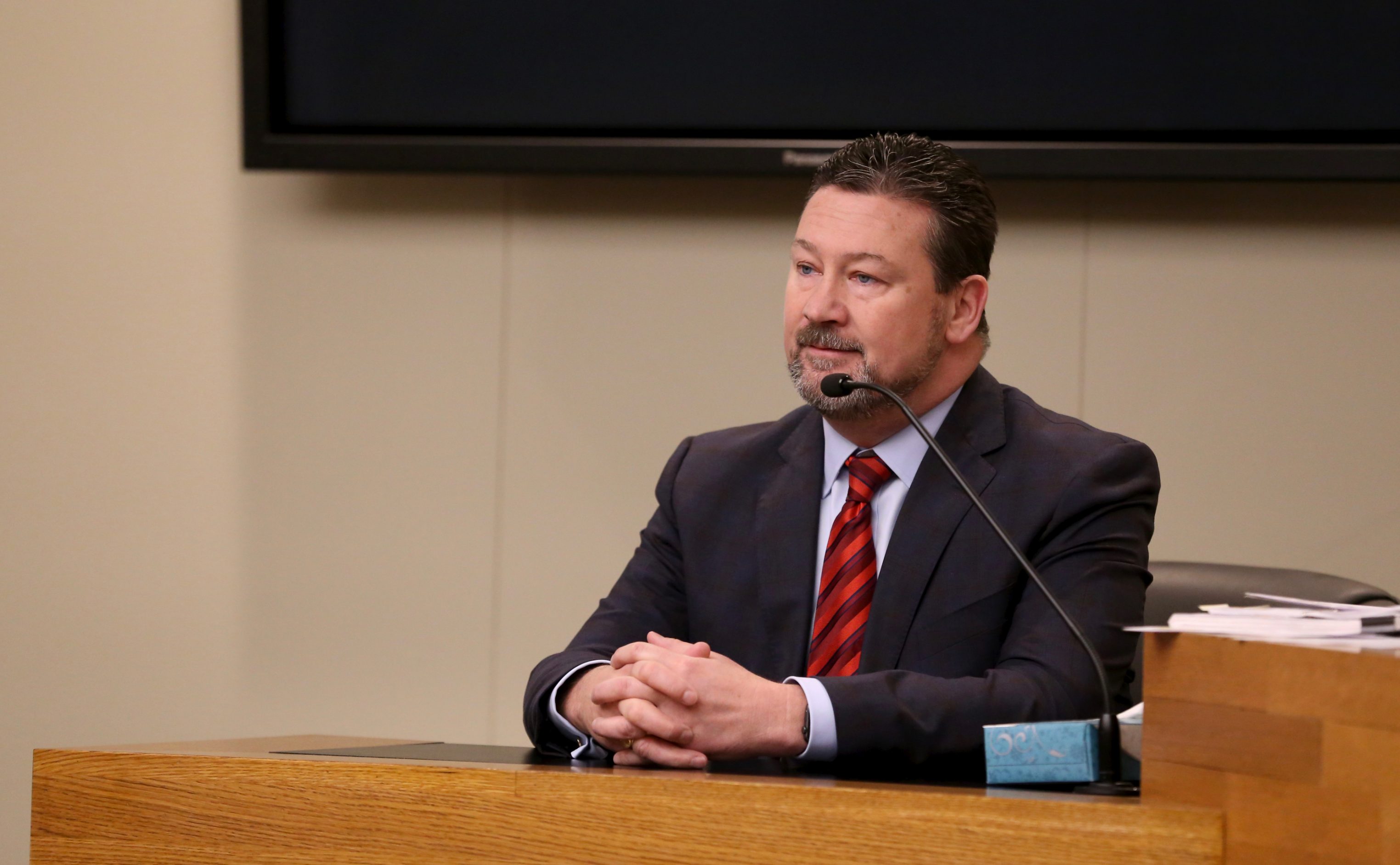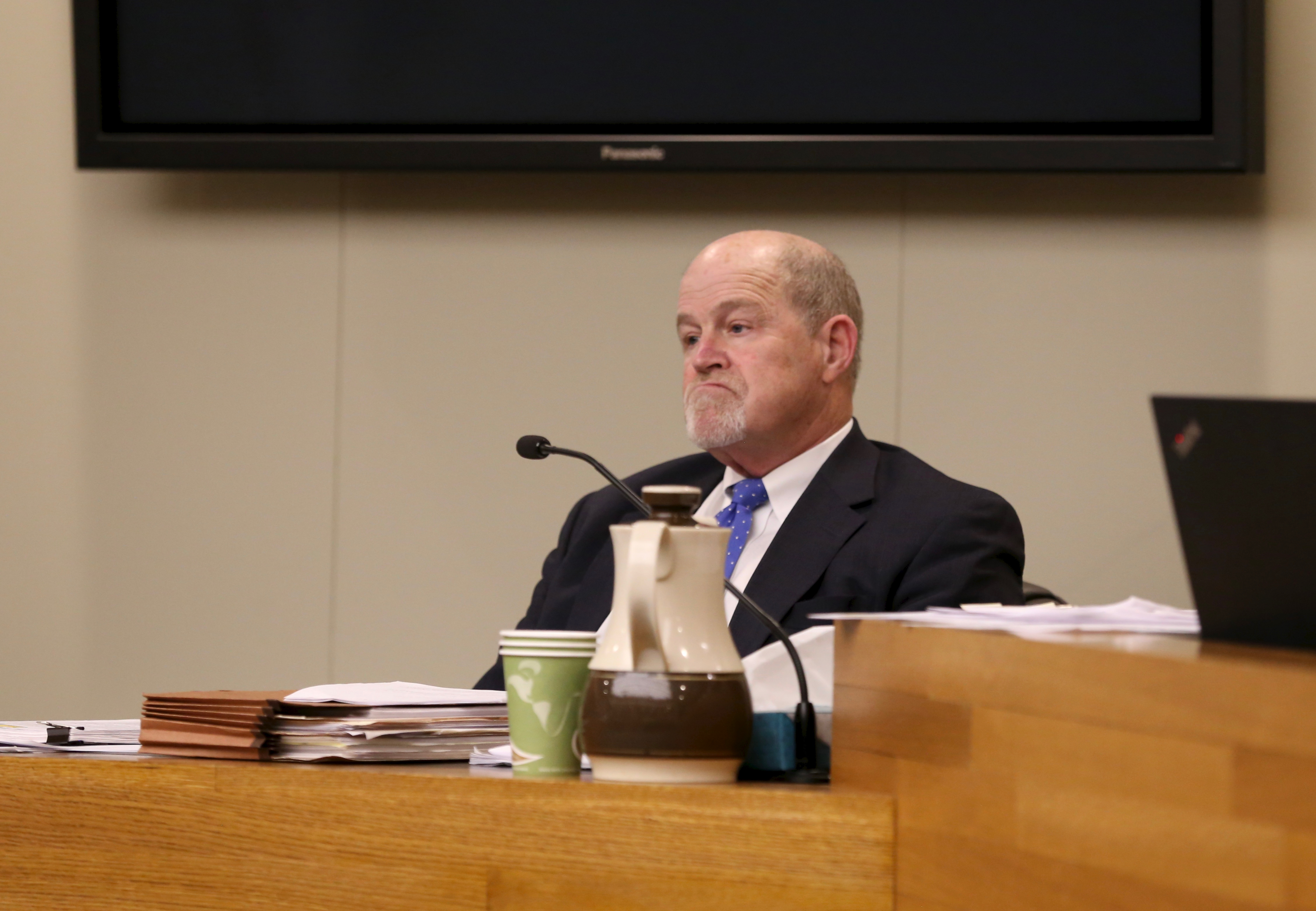Gonzales-McLinn: Attorney said ‘Don’t worry about’ plea offer, ‘we’re going to win’ before she was given 50-to-life sentence
Originally published in the Lawrence Journal-World:

Part 1 | Part 2 | Part 3 | Part 4
Sarah Gonzales-McLinn, now 25, said Tuesday that she never “wanted her story told,” as her trial attorney had said.
“I was so embarrassed,” she testified from the witness stand, for the first time in the nearly six-year span of her case. “... Who would’ve wanted to go through that?”
She had never been in legal trouble before she was charged with murdering Harold “Hal” Sasko in 2014, she said. She put all her trust in her attorney, Carl Cornwell, “because I didn’t know better, I guess.” When he told her — every time they spoke, including when he signed off in letters to her — that they were going to win her case, she believed him.
Gonzales-McLinn was back in Douglas County District Court this week for a hearing on a motion to vacate her “hard 50” sentence. Judge Amy Hanley ruled Tuesday morning that she would hear evidence on two of five arguments Gonzales-McLinn’s new attorney, Jonathan Sternberg, had made: first, that his client didn’t understand the plea agreement prosecutors had offered or the possible consequences if she did not accept it, and second, that Cornwell should have pursued a “battered woman syndrome” theory of self-defense.
During the trial, Cornwell and the expert psychologist he’d hired laid out the details of trauma Gonzales-McLinn had experienced in her “horrible life,” as he described it Tuesday: sexual abuse by “the idiot next door” as a very young child, a rape at 16 and emotional, financial and sexual abuse by Sasko.
A jury convicted Gonzales-McLinn of killing Sasko on Jan. 17, 2014. Investigators said she drugged Sasko with sleeping pills, bound his hands and feet while he was asleep, then cut his throat, nearly decapitating him.
’She’s crazy’
Cornwell took the stand to testify about his defense of Gonzales-McLinn. He said he couldn’t recall specific conversations or dates that they took place, but he thought he’d communicated to her the issues in question.

Douglas County District Attorney Charles Branson testified that he had made an offer: in exchange for a guilty plea, the state would drop its request for the “hard 50” sentence.
Cornwell testified that he wanted the sentence to be “on the grid,” meaning it would follow the standard Kansas sentencing guidelines that don’t presume life. He thought the 25-to-life alternative was still too much: “Isn’t 12 years enough for what happened to her?”
Cornwell said he was confident in his defense against premeditated murder: “She’s crazy. She doesn’t know what she’s doing.” He said Gonzales-McLinn’s dissociative identity disorder, or DID, explained what happened.
Because of the trauma she’d experienced, Sarah had “died” at age 16, Cornwell said. Twice, he said, he witnessed her alternate personalities emerging — “Alyssa” killed Sasko to escape and save herself and the others, and “Vanessa” wanted to kill herself to get away.
“Could that person right there come up with a culpable mental state to do what happened? No,” Cornwell said, referring to Gonzales-McLinn. “I’ll never believe that she could’ve done that. That girl that was born and had all that crap done to her — that person could not have done that.”
And he never believed now-retired Judge Paula Martin would have heard everything in the case and sentenced Gonzales-McLinn to the hard 50.
But the courtroom was dead silent as Cornwell testified: “I’m concerned she didn’t understand the plea offer because of her mental state and how I handled the case.”

He said in hindsight, he should have told her they weren’t going to win; he should have been more adamant with her about the plea.
“That’s where I think I failed her,” he said, emotion evident in his voice.
'Why do 25 when we’re going to win?’
Gonzales-McLinn said she felt like Cornwell was stating, as fact, that they would win her case.
She said Cornwell would kind of explain to her what was going to happen at her next hearing, but for the most part, they’d talk about how she was doing and her life when they met at the Douglas County Jail.
When he asked her about the plea a couple of weeks before her case was set for trial, “He just said, ‘This is what the state said, but don’t worry about it because we’re going to win ... Why do 25 when we’re going to win?’”
She said she didn’t know what the psychologist Cornwell had hired was going to testify about, and she didn’t know about most of the evidence before she saw it at her trial.
When she first heard in court about the state’s request for the “hard 50” under Kansas law for an “especially heinous, atrocious, or cruel murder,” Gonzales-McLinn said she’d looked to Cornwell and he explained that she didn’t need to worry about that — that was for when people are tortured. Sasko was sleeping when he was killed, Cornwell said.
She said Cornwell had told her there were many mitigating factors in her case, and she felt like the 50-to-life sentence “wasn’t even a possibility.”
Robert McLinn, Gonzales-McLinn’s father, and another close family friend both testified that they’d asked Cornwell about the plea and he had said that Gonzales-McLinn wanted her story told.
Gonzales-McLinn said she had wanted to keep her story from getting out. If she had known about the “hard 50” and all the evidence the state would present, she would not have rejected the plea.
“All of that was horrifying,” she said.
Sternberg had asked Cornwell if Gonzales-McLinn’s family members would be lying if they testified to the contrary of what he was saying.
“This family doesn’t lie,” Cornwell said. “They’re hurting is what they are. No, they’re not lying.”
At day’s end, Assistant Douglas County District Attorney Kate Duncan Butler’s cross-examination of Gonzales-McLinn had just begun. The hearing will pick up again Monday, Jan. 13.
